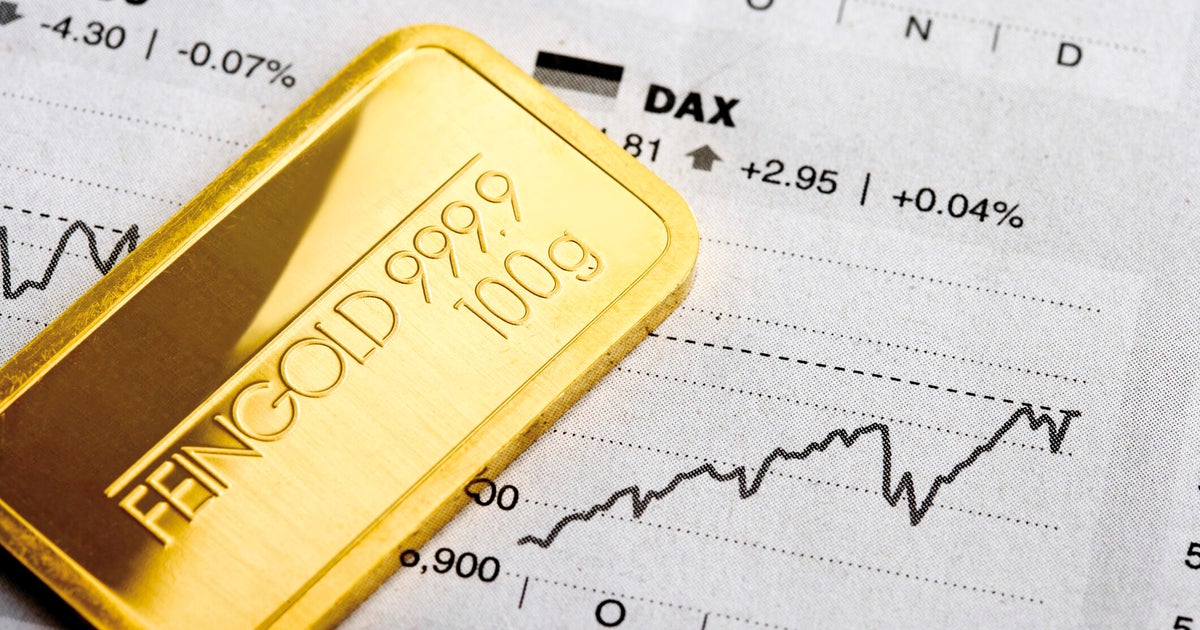Stocks jump, oil drops in latest dizzying swing for markets
Stocks rallied and oil prices fell sharply Wednesday as the big swings shaking global markets go in both directions amid uncertainty about the war in Ukraine.
The Dow Jones Industrial Average gained 654 points, or 2%, to close at 33,286. The S&P 500 rose 3.6%, ending a four-day losing streak, and the tech-heavy Nasdaq composite added 3.6%. Such big swings have been jerking markets around in recent weeks as investors try to assess how much economic damage Russia's invasion of Ukraine will do. That volatility has struck not only day-to-day but also hour-to-hour, with some days seeing several big reversals.
The chaotic movements are likely only to continue with uncertainty so high about the war in Ukraine and its ultimate economic fallout. The region is key to markets because it's a major producer of oil, wheat and other commodities, whose prices have spiked on worries about disruptions to supplies.
Stocks once again moved in the opposite direction of oil prices, with inflation such a dominant worry. Analysts said bargain hunters may be scooping up stocks after concerns about a slowing economy coupled with high inflation triggered their steep recent slide.
"Glimmer of hope"
Many of those buyers appear to be smaller-pocketed, "retail" investors trading on their phones and laptops. And they're often buying shares that big professional investors are selling. Investors also are taking encouragement from a scheduled meeting in Turkey on Thursday between Russian Foreign Minister Sergei Lavrov and Ukrainian counterpart Dmytro Kuleba.
"Equity markets have a bid today as the markets are clinging to the slightest glimmer of hope of a possible step towards de-escalation when the Ukrainian and Russian finance ministers meet in Turkey tomorrow," Anu Gaggar, global investment strategist for Commonwealth Financial Network, said in an email. "Markets may also be taking a break from a downtrend and seeing some consolidation due to oversold conditions."
Crude oil prices tumbled and the slide accelerated amid reports that the United Arab Emirates will urge fellow OPEC members to boost production and ease supply concerns. A barrel of U.S. crude oil dropped 12.1% to settle at $108.70. Brent crude, the international standard, fell 13.2% to settle at $111.14.
The dip could offer a brief respite to U.S. motorists after gas prices hit another record high on Wednesday. The national average now stands at $4.25 per gallon, the highest ever following Tuesday's previous record of $4.17 per gallon.
"Markets were priced like the Straits of Hormuz were blockaded, and that was just not reasonable," Jamie Cox, managing partner for Harris Financial Group, said in an email about the market rally. "And it's not like the Middle East suddenly was offline. Markets often have 'hair on fire' overreactions to world events, which unlocks tremendous value for those who pay attention to the price dislocations."
Last week saw record selling of U.S. stocks by hedge funds, strategist Jill Carey Hall wrote in a recent BofA Global Research report. Retail investors and institutional investors were net buyers.
The moves by retail investors may be a result of people worrying about missing out on any potential rebound. A "buy-the-dip" strategy, where drops in stocks were seen mainly as opportunities to buy low, was very successful following the 2020 crash caused by the coronavirus. The S&P 500 kept climbing from that plummet without a 10% drop until just recently.
Big recent moves for markets also show that prices already reflect a lot of pessimism, with crude oil prices up more than 50% so far in 2022. That may be why crude prices actually receded on Tuesday, after President Joe Biden announced a U.S. ban on imports of Russian oil.
A ban will mean disruptions to supplies, but oil traders may already have accounted for it when they briefly pushed the price of U.S. crude above $130 a day before the announcement.
Gold prices and a measure of nervousness among stock investors on Wall Street also eased.
European nations face an even greater shock than the U.S. from rising energy prices because of Russia's invasion of Ukraine. That could result in the European Union taking greater action to shore up its economy. The result could be more stimulus and more caution from central banks on interest rate increases, said Stephen Dover, chief market strategist and head of Franklin Templeton Investment Institute.
"Whereas the U.S. will have the wind in its face as stimulus falls, Europe may actually have the wind at its back."
On Wall Street, the gains were broad-based, with nearly 90% of the stocks in the S&P 500 rising, led by technology companies. Some of the strongest moves came from airlines, travel companies and other stocks that bounced back from steep drops on worries about fuel costs and the economy.
Fed on target for rate hike
Treasury yields climbed as an anticipated increase in interest rates by the Federal Reserve nears. The Fed's policy-making committee is meeting next week, and the wide expectation is that it will vote to raise its benchmark short-term rate by a quarter of a percentage point. It would be the first such increase since 2018.
The Fed is facing a delicate and increasingly tough task as it moves to raise rates through 2022, which tends to slow the economy. The central bank wants to pull rates high enough to push down inflation, which is at its highest level in generations. But it doesn't want to raise them so much that it causes a recession.
"There's more uncertainty about what the Fed is going to do now than just a few weeks ago," Dover said.
The yield on the 10-year Treasury rose to 1.94% from 1.86% late Tuesday.
The value of bitcoin rallied more nearly 9% and was back above $42,000 after Biden signed an executive order on government oversight of cryptocurrency. Crypto players have increasingly been saying they welcome increased regulation, and they want to have a hand in shaping it.



